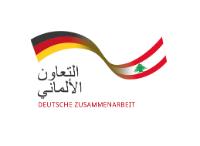Building Consensus for Economic and Social Reform in Lebanon
|
Building Consensus for Economic and Social Reform in LebanonSeminar 2: Anti-corruption and business integrity Anti-corruption is a top priority in Lebanon and a cornerstone of citizens’ trust in the government. The second seminar introduced ways to support the Government of Lebanon’s anti-corruption and integrity reforms. The main objective of the meeting was to provide an overview of international standards and showcase relevant regional and international multi-stakeholder anti-corruption initiatives and their related tools. It also comprised a multi-stakeholder discussion on the current agenda for reform in Lebanon, in particular the new National Anti-Corruption Strategy, and the role that ESC can play in its implementation. Read the Agenda |
Lebanon has great potential which still needs to be fully exploited. It is an upper middle-income economy, with impressive development dynamics. It has one of the most diversified economies in the MENA region, with a high level of openness and a strong private sector. Currently, however, internal and external factors – including the war in neighbouring Syria – are undermining Lebanon’s economic stability, and there are signs that Lebanon may be falling into a deep recession.
To counter this tendency, Lebanon has put forth an ambitious vision for economic reforms, the Vision for stabilization, growth and employment, which was presented at the CEDRE Conference in April 2018 in Paris. At the same conference, the international community showed strong support for Lebanon, with pledges in soft loans and grants of USD 11 billion for the Capital Investment Programme. In this context, the OECD has offered its support to facilitate Lebanon’s reform efforts.
Building Consensus for Economic and Social Reform in Lebanon
The MENA-OECD Competitiveness Programme is now working with the Economic and Social Council of Lebanon and key stakeholders to effectively lead social dialogue efforts on the country’s priorities. The project is financed by the German Foreign Office.
Approach
The Economic and Social Council of Lebanon can build on international experiences to become a modern and dynamic institution that makes a difference during this critical period. The OECD believes in the power of peer learning and the need to share experiences across countries. In light of this, the OECD will develop a programme to fast track such learning processes by:
- bringing together Economic and Social Council peers from many countries including Belgium, Cote d’Ivoire, the EU, France, Germany and Morocco
- mobilising a pool of international experts to share different tools for holding consultations, ensuring transparency and using available data for evidence-based analysis
- organising seminars to address policy areas that are a priority for the government including anti-corruption policies, the social impact of fiscal reforms and initiatives to improve the business climate
Main objective
Ultimately, this project aims to develop a lasting culture of dialogue in Lebanon. Collective leadership is needed to improve the economic and social prospects for society. The OECD will support the Economic and Social Council of Lebanon so that it can play a pivotal role in shaping the future of the country.
Meetings
|
11-14 June 2019 |
Study tour to Paris and Brussels: 10 members of the ESC of Lebanon attended the plenary session of the Economic, Social and Environment Council of France (CESE) and the committee session of the European Economic and Social Committee (EESC) to better understand and discuss the role ESCs play in France and the EU. |
|
17 April 2019 |
|
|
27 February 2019 |
Project launch: Building Consensus for Economic and Social Reform in Lebanon |
Contact us:For further information, please contact: MENA.Competitiveness@oecd.org |
|
Related Documents


